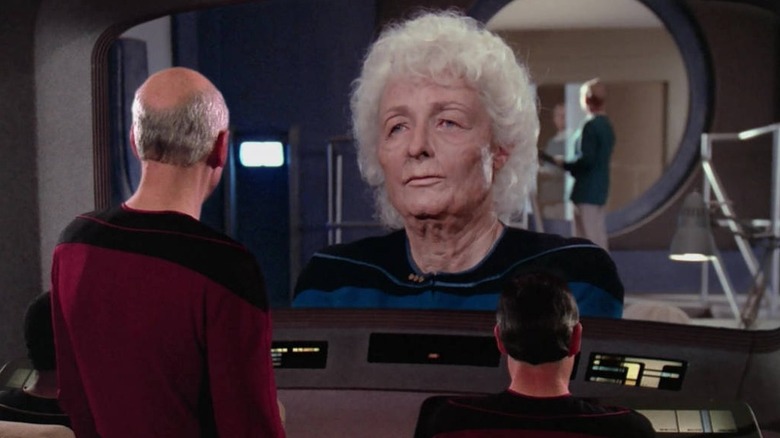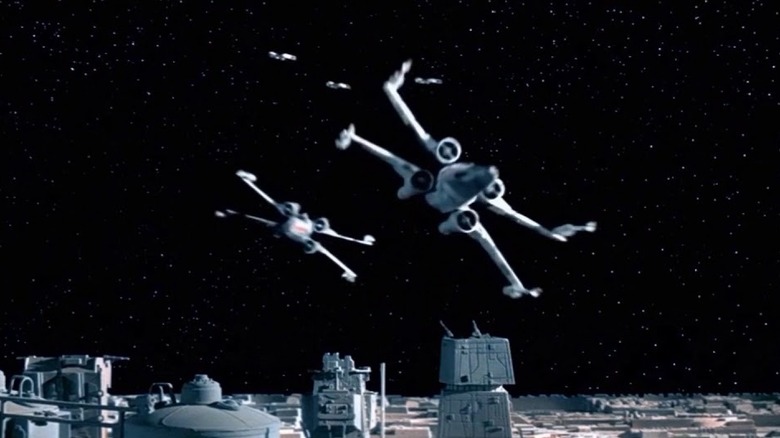Why Star Trek: The Next Generation Was Put On Hold For Years And Years
"Star Trek" was canceled in 1969 and then, 18 years later, the sequel series "Star Trek: The Next Generation" premiered. Reviving canceled shows is standard practice these days, when streaming services have all but replaced network TV and cable. However, the "Star Trek" renaissance was only possible thanks to a feature of that old model of TV: syndication, where a series would be sold for broadcast to multiple different channels.
In a 2007 oral history of "The Next Generation" by Entertainment Weekly, Robert H. Justman (a producer on what's now called "Star Trek: The Original Series") said that syndication reruns of "TOS" were why the suits were interested in a new "Star Trek" series. "[The reruns] just gathered up a whole slew of people who had never seen the show," Justman recalled.
That new "Trek" show ultimately became "The Next Generation." However, it was first conceived of in the late 1970s as "Star Trek: Phase II." That show would've been a more direct sequel to the original, with most of the original cast returning. It failed to get off the ground — because of "Star Wars." Trekkies and "Star Wars" fanboys have an infamous rivalry over which series is America's premier space-set series. However, this time, Paramount was taking its "Trek" cues from the Galaxy Far, Far Away.
Star Trek: Phase II, Interrupted
As D.C. Fontana (a writer on both "Star Trek" and "The Next Generation") told EW, scripts for "Star Trek: Phase II" were written; the pilot of "TNG" — "Encounter At Farpoint" — was meant to launch "Phase II." Then, she said, "Star Wars" came out in 1977 and Paramount decided they'd rather make a "Star Trek" movie instead. After all, George Lucas' new epic proved that audiences would line up to see starships and space battles convincingly portrayed onscreen. Paramount thus shelved "Phase II" and the "Original Series" cast instead reunited on the big screen for "Star Trek: The Motion Picture."
It was only after "Star Trek" proved to be a viable film franchise that a new TV show was produced, which morphed from "Phase II" to "The Next Generation." The title shift reflects the premise being redone; the new series was literally a new generation of characters, with a new starship Enterprise, who followed in the originals' footsteps. "Star Trek" creator Gene Roddenberry accepted the offer to lead "TNG" because Paramount made it clear the series was happening with or without him. However, it was only under later writers, such as Ronald D. Moore, that the series came out of the shadow of "Phase II" and found its footing — footing firm enough to hold for seven seasons total.
Moore, who has since co-created the alternate history space race series "For All Mankind," acknowledged this "Star Trek" trivia in that series. In this timeline, "Phase II" went ahead, "The Wrath of Khan" was the first "Star Trek" movie instead of the second, and "The Next Generation" became the third and final "Star Trek" series. A world without "Deep Space Nine"? Not sure I could bear that.

